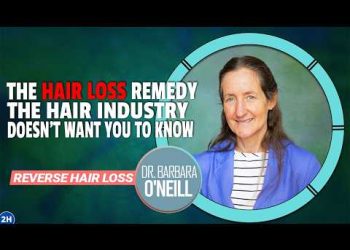Introduction to Cholesterol: An Overview
Cholesterol is often labeled as the enemy in health circles, but is our understanding of it truly accurate? This article delves into whether we are addressing cholesterol management effectively and explores insights from a medical professional reacting to traditional approaches.
The Traditional Approach to Cholesterol
For decades, the approach to cholesterol has been largely focused on lowering LDL (the so-called “bad” cholesterol) levels. This typically involves dietary changes, lifestyle adjustments, and at times, medications such as statins. However, debate continues about whether focusing solely on LDL is the best approach.
Cholesterol’s Role in the Body
Cholesterol is a waxy substance that is crucial for producing hormones, vitamin D, and substances that aid digestion. While essential for these functions, excessive levels in the bloodstream can lead to health problems, notably heart disease. This dual role makes understanding cholesterol complex and nuanced.
LDL vs. HDL: The Good and the Bad
The terms LDL and HDL have become commonplace in discussions about cholesterol. LDL is often labeled as bad because of its association with plaque buildup in arteries. Conversely, HDL is considered beneficial as it helps remove cholesterol from the bloodstream. Thus, maintaining a balance is key.
Misconceptions About Dietary Cholesterol
Common misconceptions about cholesterol often lead to confusion. Dietary cholesterol, found in foods like eggs and shellfish, is not the primary culprit for high blood cholesterol levels. Instead, trans and saturated fats often have a more significant impact on cholesterol levels.
New Research: Rethinking Cholesterol
Recent research suggests that there may be multiple factors affecting heart health beyond just LDL levels. Inflammation, genetic factors, and overall lifestyle are also critical components of cardiovascular well-being, indicating a need for a more personalized approach to treatment.
The Importance of a Holistic Approach
Instead of focusing solely on cholesterol numbers, a more holistic approach could potentially offer better health outcomes. This would consider diet, exercise, mental health, and genetic predispositions, aiming for a comprehensive strategy for heart health.
The Role of Statins and Other Medications
Statin drugs have been effective for many in managing cholesterol levels, yet they are not without side effects. The decision to use medication should be carefully weighed against potential risks and benefits, ideally under a doctor’s guidance who is open to discussing various treatment options.
Nutritional Considerations
A diet rich in fruits, vegetables, whole grains, and healthy fats is recommended for maintaining healthy cholesterol levels. Foods like fatty fish, nuts, and olive oil provide nutrients beneficial for heart health, potentially reducing reliance on medication.
Conclusion: A New Perspective
In conclusion, the conversation around cholesterol is evolving. While traditional methods have value, incorporating new research and personalized approaches could improve outcomes. By understanding the nuanced role of cholesterol and taking a comprehensive approach to health, individuals may better manage their heart health effectively.











